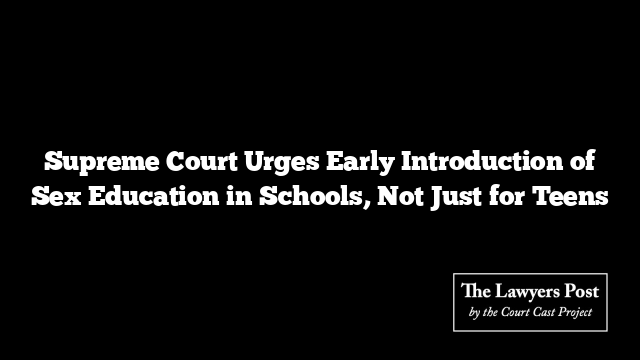The Supreme Court has signaled a shift in how India approaches sex education, suggesting it should start at a younger age rather than being confined to Classes IX through XII.
While hearing the bail plea of a 15-year-old juvenile accused under serious sections of the Indian Penal Code and the POCSO Act, the bench comprising Justices Sanjay Kumar and Alok Aradhe highlighted the importance of informing children early about bodily changes, puberty, and associated responsibilities.
The State of Uttar Pradesh had submitted that sex education is currently offered only from Classes IX to XII, following the NCERT guidelines. The Court, however, found this insufficient and emphasized that young adolescents should be educated about puberty and related consequences much earlier.
The Supreme Court left the matter open, urging authorities to consider necessary revisions to the curriculum so children can receive timely and age-appropriate information. “It is for the authorities concerned to apply their mind and take corrective measures, so that children are informed of the changes that happen after puberty and the care and cautions to be taken in relation thereto,” the Court stated.
The case, Juvenile X v. State of U.P., underscores a growing recognition that early education on sensitive topics is crucial for safeguarding children and guiding them through adolescence.





